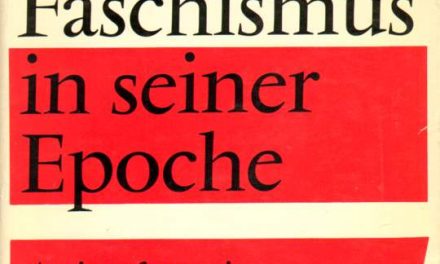Pope Francis has once again denounced consumerism in the strongest possible terms. Speaking at an Angelus, the Pope decried “the daily vanity, the poison of emptiness that insinuates itself into our society based on profit and having (things), that deludes young people with consumerism.” Instead, he reminds us “True wealth is the love of God, shared with one’s brothers, that love that comes from God and makes us share among ourselves, and makes us help one another.” I’m hopeful that such statements will become so frequent that it will be as unsurprising as when a pope stands up for the unborn.
However, I learned of the statement through a Catholic News Service tweet, that said: “Remember, #PopeFrancis denounced consumerism, not capitalism. Huge diff. between the two, yes?”
Ummm… NO!
There are several layers of problems, which, despite the annoying features of tweeting, are on open display here, and deserve comment.
1. Why feel the need to quickly jump in and defend “capitalism”? It is kind of like the preacher I heard this weekend, faced with the gospel text of the man building bigger barns, who (of course!) began his homily by saying: “Now we need to be clear that Jesus is not against wealth. The Catholic Church has never taught that.” Tecvhnically, this is true – though the Church does in fact teach against excessively big houses, which of course were never brought up in the subsequent homily. But I think it is telling how sensitive some people are to this possible implication of the gospels, that our entire economic system – or at least many of the taken-for-granted behaviors of those with wealth – might be under judgment and contrary to God’s will. It SOUNDS like the Pope is condemning our mainstream agreement that progress means ever-greater social wealth and innovative gadgets, just as it SOUNDS like Jesus’ story of building bigger barns and kicking back to eat, drink, and be merry might be challenging our pretentions to houses and resort-lifestyles in retirement. But, eek, that CAN’T be.
2. If there was a “huge” difference between the two, the tweet would not be necessary. There’s a fair differentiation to be made here, but it is certainly NOT a huge difference.
3. It should be pointed out that the popes and the Catechism already condemn “capitalism,” understood in a pure-free-market way. The Catechism specifically rejects both “regulating the society solely by centralized planning” and “solely by the law of the marketplace over human labor” (#2425). In his most pro-market encyclical, and accompanied by a scathing denunciation of “consumerism” (#36), Pope John Paul II condemns forms of “capitalism” which deny that “freedom in the economic sector” need to be “circumscribed within a strong juridical framework which places it at the service of human freedom in its totality” (#42). That is, what the popes clearly have in mind is a free enterprise system strongly regulated by law, whose benefits are distributed fairly and offer basic dignity to all, and whose production is oriented to uplifting persons and becoming better people, not grinding people down for the sake of having more and better things. The pope himself says that a better term for the system he envisions is simply a “business economy” – this is because “capitalISM” implies the (condemned) priority of capital over labor.
4. The reality is that at least in its American form, capitalism driven by the promotion of consuming more and better goods and services, in as many areas of life as possible, to the maximum limits our incomes (or incomes plus credit) allow. It is economically absurd and historically naïve to argue otherwise. Many, many tomes have been written about what was in effect the labor-management bargain struck in the U.S. in various ways (Ford, New Deal legislation, post-war unions). Wages were meant to increase along with productivity, and in exchange, workers would cooperate with management. Workers couldn’t expect to run the show, but they could expect decent salaries, a new car in the driveway every few years, and the amenities of their little villa in the suburbs. It has also been pointed out that, since the mid-1970’s or so, in part because of globalization, in part due to other factors, like expensive oil, global currency regimes, and (yes) overly-greedy unions, this deal has broken down… at least for workers in non-specialized fields. However, this has not stopped the spending much (buy cheaper stuff from stores and restaurants that pay workers very little! Take out a home equity loan! Get four credit cards while a college student (the average number, BTW)!), and it certainly has not stopped the aspirations. At least in its American form, capitalism is all about consumerism. Take the consumerism out of our capitalism, and what would you have left? The populist mythology of the small shop owner is (unfortunately) mostly mythology in today’s world.
I am currently reading a fascinating new book (Sheldon Garon, Beyond Our Means, Princeton UP, 2012) which exhaustively outlines the “consumerism-driven capitalism” that the US particularly embraced after World War II – and contrasts it with the systems developed in European and Asian economies. Far from a typical Rightist screed about “government extravagance,” Garon instead examines how the whole society has become dependent on spending beyond limits in order to keep the economy going. He points out the complex mix of structural and cultural forces that have driven us to this point. It is not just “evil banks” or “irresponsible individuals” – it is BOTH! For example, did you know that almost all European “credit cards” are in fact just “delayed-debit cards” that have to be paid off every month? Did you know that the average new home size in Germany is just over 1200 square feet, whereas in the US it has ballooned to over 2300 square feet… and that only 40% of (prosperous!) Germans own their home? The point here is that the house-and-car-driven consumer capitalism is built into both our systemic incentives and our cultural mores.
I hate to sound harsh, but these sorts of faux and uninformed distinctions between “consumerism” and “capitalism” need to be exposed for what they are: evasions of Catholic teaching that is clearly applicable to our everyday lives, mine included. I’ve not even mentioned here how things like our mutual-fund-based retirement system incentivize the profit-maximization motive by driving companies to maximize profits in service of “greedy shareholders” – i.e. you and I looking at our mutual fund statements. There isn’t an easy solution to these challenges, but evading them is certainly a huge illusion.
Simply in terms of “the poison of consumerism,” what are the REAL challenges to American capitalism here? The pope is challenging two things. One, he is challenging key elements of the economic system on which nearly all of us depend, specifically the priority of profit maximization and the unquestioned acceptance of innovation (i.e. new stuff). And two, he is challenging key choices that many of us make frequently and virtually assume to be “normal,” to devote our incomes and our lives to new, better, fancier things and experiences. As I wrote this, a hulking white machine went past my window – a Cadillac Escalade. The absurdity of maneuvering such a machine down a treed, turn-of-the-century city side street is a painful, almost cartoonish manifestation of these problems – both the systemic ones (note who we felt it necessary to bail out, and you will see which agents in our economic system are deemed “necessary”) and the personal one (what are these people thinking?!?) And I completely reject the idea that this is some kind of liberal elite snobbery. My working-class Chicago parents who never went to college would view the Escalade in exactly the same way.
So by all means, tweeters, remind us that one can live in our society and try to escape from its “consumerism” and live in alternative ways. And by all means remind us that free markets are not from the devil. But don’t pretend that we can escape from the pope (or Jesus!) by hiding behind the idea that our “capitalism” is mostly from the “poison” of “consumerism.”






On the consumer level (as opposed to the governmental) my difficulty with Catholic Social Teaching, and why I think it gets avoided so often, is that it is so vague and abstract. When the Church tells me that adultery is wrong, I have little trouble knowing what to avoid. But when it says greed is wrong, I get a little confused. Can I drive a $7,000 used car? Can a family live in a 1600 sq. ft. apartment? Can I have money saved for retirement as opposed to given for the poor?
It’s not that I think the Church should propose absolute rules or, much less, claim they are divinely revealed. But there need to be at least some system that can provide accountability – be it from local small groups trying to live out CST or whatever.
As it is, it seems like the only two options are a vow of poverty or absolute vagueness. And the latter becomes so confusing that most people, it seems, just give it up.